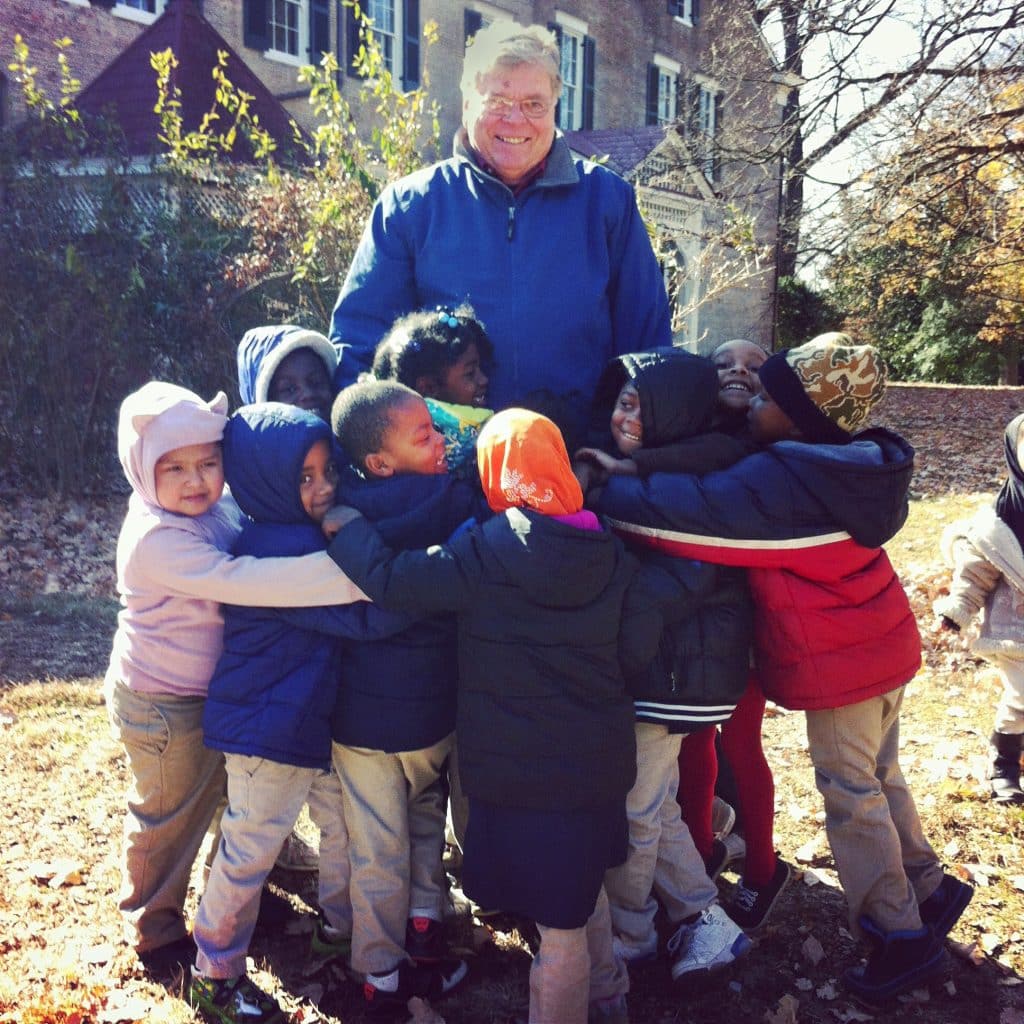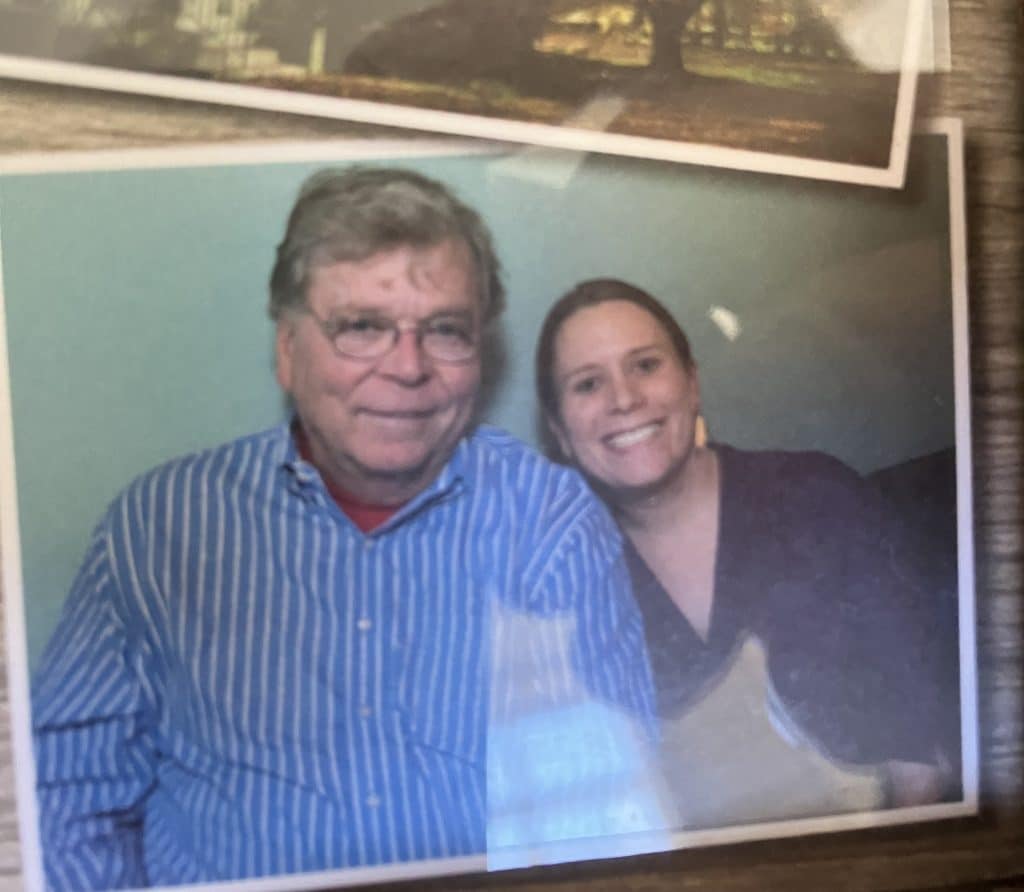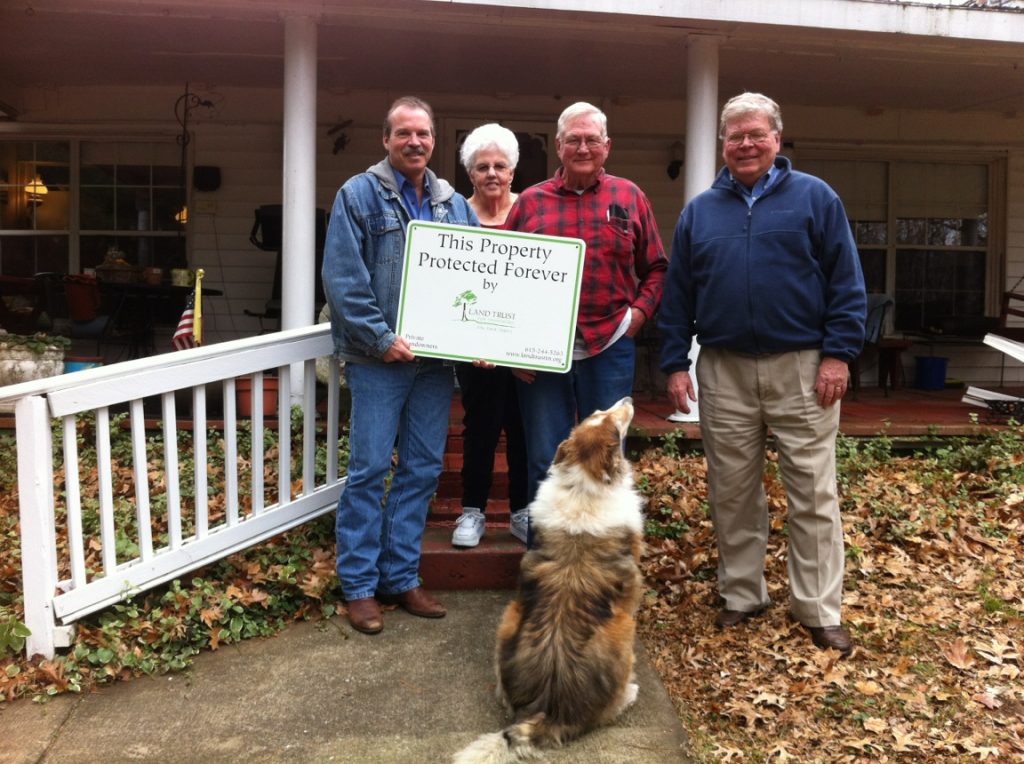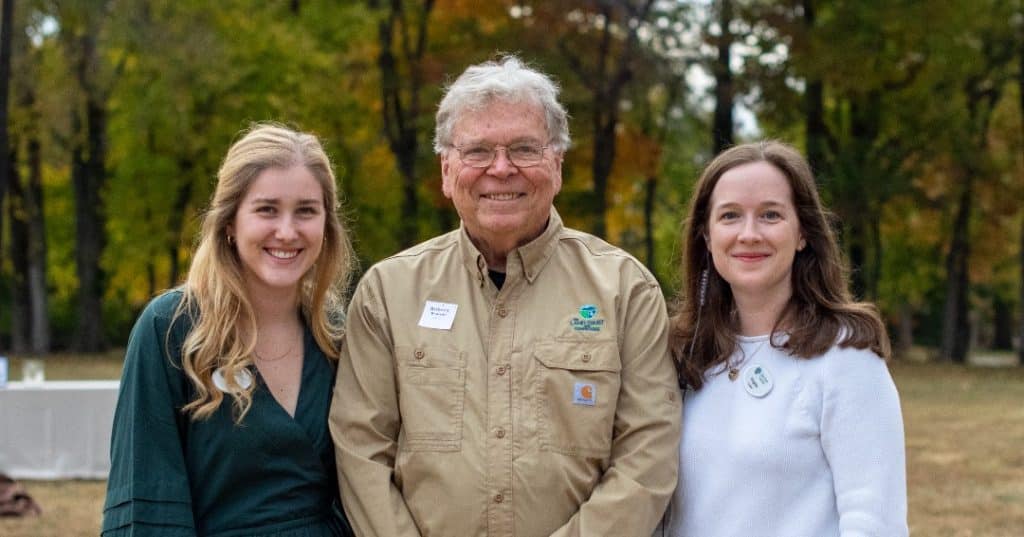Board Member Spotlight: Robert Brandt
Robert Brandt is an integral part of the Middle Tennessee community and of The Land Trust for Tennessee. He is a retired judge, lawyer, and adjunct faculty member at Vanderbilt University, and has long been involved in conservation work. In fact, he was one of the founding members of the Tennessee chapter of the Sierra Club, the oldest grassroots environmental organization in the United States.
As a native of Norris, Tennessee, Brandt has always found ways to weave his passion for the environment in with his love of his home state. He is an accomplished author of books and articles about Tennessee history, travel, and outdoors. Some of these include Touring the Middle Tennessee Backroads and Painted Trillium: A Novel of the Civil War. His articles have also been featured in the Sierra, Tennessee Historical Quarterly, and The Tennessee Conservationist.

Brandt is 82 years old and still as involved in the community as ever, including as a member of the Board of Directors at The Land Trust for Tennessee. We invited Brandt out to The Land Trust for Tennessee’s Glen Leven Farm to discuss his involvement with organization and why conserving the unique character and natural landscapes of Tennessee is so important.
Interviewer: So happy to be here with you, Bob. I really appreciate you coming out to The Land Trust’s Glen Leven Farm to chat. How did you become involved with The Land Trust for Tennessee?
Brandt: After I retired from being a judge, I went back into law practice and I practiced law with Byron Trauger, who was and still is good buddies with Phil Bredesen. Phil was then mayor of Nashville and was later governor of Tennessee. Byron said that Bredesen would like me to come out to his house to talk about starting a new conservation organization. That was December of 1998, I suppose.
Interviewer: Do you remember anything about that meeting?

Brandt: It was cold and he had a wood burning fire going. He explained how a land trust operates— with conservation easements— and that he had bought some land in Jackson Hole, Wyoming. He said when he was looking over the paperwork, he noticed that it was subject to a conservation easement and he didn’t know what that was, so he asked the realtor and learned about what the Jackson Hole Land Trust does. He thought we should start something like that in Tennessee. I’ve been involved in it ever since.
Interviewer: Why do you think Phil Bredesen thought you would be particularly interested in The Land Trust?
Brandt: Well, I have a history of being involved in conservation work. I was one of the founders of the Tennessee chapter of the Sierra Club. But then I went on the bench, and figured I shouldn’t be involved in controversial causes because you don’t want litigants to come in front of you and think you’re ruling one way or the other because you think one way, so you try to be anonymous really. And so, I just had a history of being involved in conservation work, which he knew about.
One of the things that appealed to me about The Land Trust is that during my earlier work in conservation, I was involved in establishing the Big South Fork National River and Recreation Area, Obed National Wild and Scenic River Areas, and the wilderness areas in the Cherokee National Forest. All of these campaigns were struggles. My whole career had been dealing with conflict. So, I liked the idea of working with people who wanted us to work with them as opposed to controversy.
Interviewer: That makes sense. I can see how that would be appealing. Looking back, do you have a favorite memory of working for The Land Trust?
Brandt: When we first started, we had a staff of two and I had a fair amount of flexibility in my career. So, I did a lot of work that the staff does now. I went on tons of what we called initial site visits and met with landowners and explained to them what we do.

Interviewer: Why do you think that the work of the Land Trust is important?
Brandt: I think it’s important to conserve our natural and scenic landscapes and rivers. My whole life has been devoted to that and it’s vanishing rapidly — particularly in Middle Tennessee — so, I think it’s important that we preserve open space, healthy forests, productive farmland, all of the above.
Interviewer: What do you think is lost when we lose those things?
Brandt: Well, there are parts of Tennessee that are unique. Middle Tennessee has some of the most beautiful pastoral landscape in America. There are only a handful of places I know of that can compare to it.
Most of the currents of American history have flowed through this state. You know, the Civil War, the Western Frontier, Civil Rights, The New Deal — most of those things have had profound events that happened in Tennessee. So, I just feel passionate about conserving this heritage.
Interviewer: Speaking of that rich history tied to the land, The Land Trust for Tennessee mentions the importance of “sense of place” a lot. What does “sense of place” mean to you?
Brandt: It means pretty much everything. When my book, Touring the Middle Tennessee Backroads, came out, I’d go around and speak to civic groups and that sort of thing and I’d prepare a slide presentation. And I would finish it and I would have slides of “you-could-be-anywhere” suburban sprawl, like some suburbs of Nashville. And I just think it’s important to protect the places that are unique.
Interviewer: It seems like based on the work you do and the books you’ve written that you feel a strong connection to Tennessee. Where exactly in East Tennessee are you from?
Brandt: I grew up in a unique town called Norris. It’s a town built by the Roosevelt administration as a model town during the Great Depression. There’s also thousands of acres of forestland that the government bought, and the Civilian Conservation Corps built trails all through it and I just thought that’s where everybody lived, you know. So as a little kid it was a great place to grow up. There was a lake and we had 800 miles of shoreline.
Interviewer: Have you noticed the place where you grew up changing?
Brandt: Oh, yeah. The town itself hasn’t changed much because it’s on the National Register of Historic Places. But in the 1970s, interstate 75 was built within a mile or two of the town. It was a beautiful valley and it’s now just filling stations and motels and the usual stuff. The town itself hasn’t changed a whole lot I don’t think, I mean I haven’t been there in a while. But the area around it certainly has, and the interstate has made the trip into Knoxville much shorter. So, there are subdivisions going in all over.

Interviewer: Switching gears a bit, how does supporting The Land Trust advance your philanthropic goals? Or what are your philanthropic goals?
Brandt: You want your money to go somewhere it makes a difference. I wrote that book, Touring the Middle Tennessee Backroads, and it just thrills me to be able to help conserve a lot of the very places I wrote about. So to be able to learn about all these places and write about them in a successful book and then be involved in saving them is almost like a dream come true. That’s a little dramatic but it’s the way I feel.
One other thing I want to mention about Middle Tennessee is this: People think of East Tennessee and they think of mountains. When people think about what’s pretty about East Tennessee they think about the public land like Great Smoky Mountains National Park, Cherokee National Forest, Big South Fork River Recreation Area, Fall Creek Falls, all these places. When you think of Middle Tennessee, it’s pastoral countryside. “Pleasing” is the word I use. I can’t think of any better blend of manmade and natural environment.
Interviewer: What should others know if they’re considering supporting the land trust?
Brandt: That we’re preserving what makes our part of the world unique. I want to see my native state preserve what makes us unique and special. The money is spent wisely. We’re also good stewards of the donations we receive.
The Land Trust for Tennessee is grateful for the dedicated volunteers who make our conservation work possible. See our current Board of Directors.